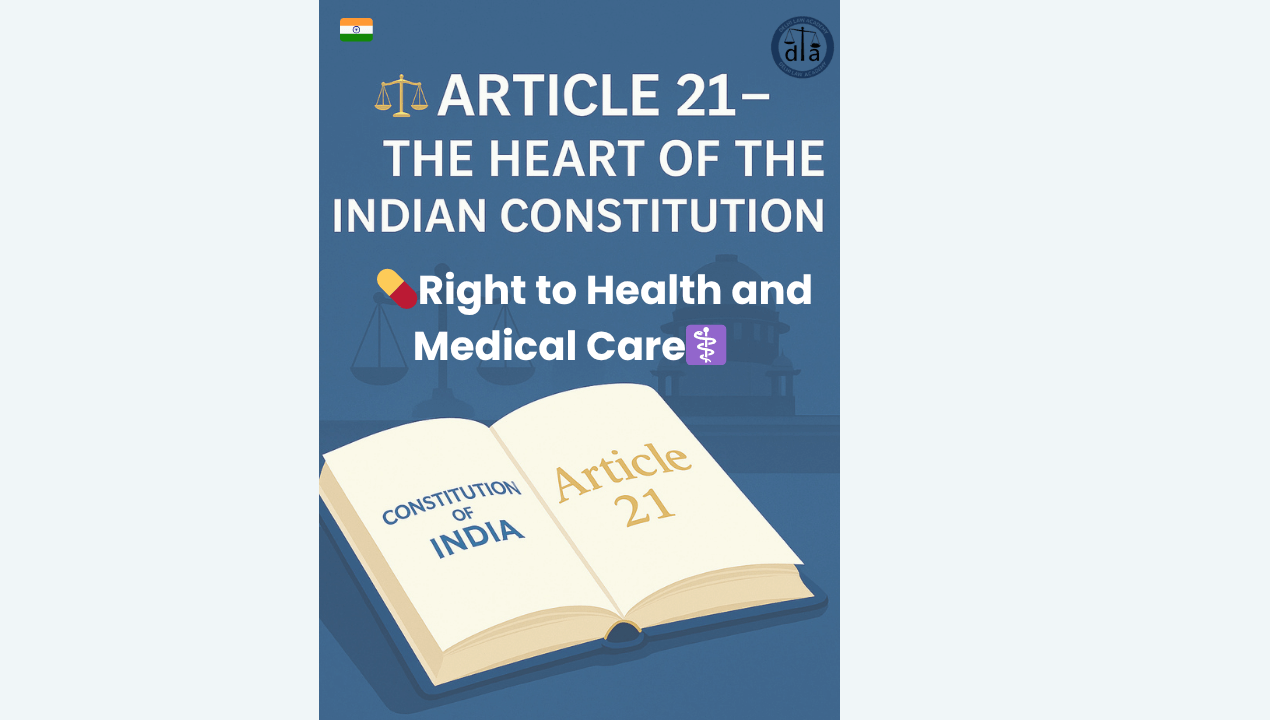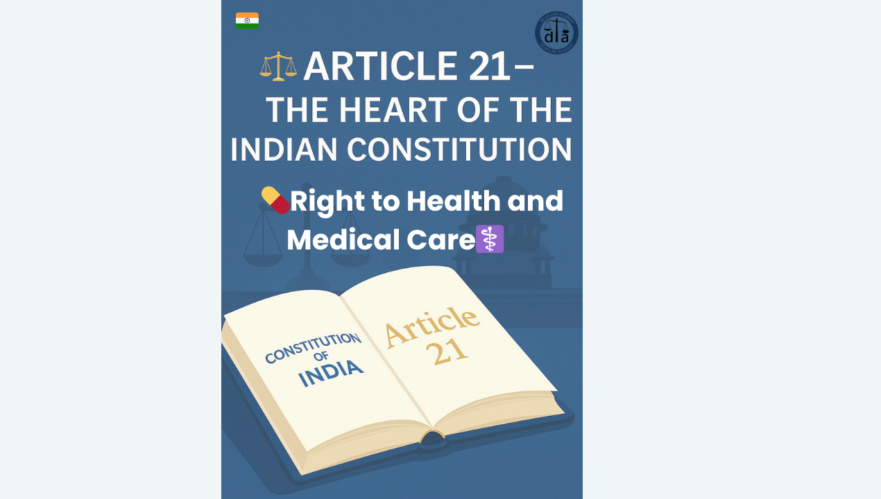
⚕️ Right to Health and Medical Care | Article 21 of the Indian Constitution
The Right to Health and Medical Care is a crucial component of the Right to Life guaranteed under Article 21 of the Indian Constitution.
It ensures that every individual has access to basic health facilities, emergency medical services, and an environment conducive to physical and mental well-being.
📜 Constitutional Foundation
Although the Constitution does not explicitly mention the right to health, the judiciary has interpreted it as an essential part of the right to life and personal liberty under Article 21.
Without good health, the enjoyment of life and other fundamental rights becomes meaningless.
“Preservation of human life is of paramount importance. The State has an obligation to safeguard the lives of people.”
— Parmanand Katara v. Union of India (1989)
⚖️ Landmark Judgments on Right to Health
- ❤️ Parmanand Katara v. Union of India (1989) – The Supreme Court held that every doctor, whether in a government or private hospital, has a professional duty to extend medical aid to an injured person immediately to preserve life.
- 🏥 Paschim Banga Khet Mazdoor Samity v. State of West Bengal (1996) – The Court held that failure of government hospitals to provide timely medical treatment amounts to a violation of Article 21.
- ⚕️ Consumer Education and Research Centre v. Union of India (1995) – Recognized health care of workers as a fundamental right under Article 21.
- 💊 State of Punjab v. Mohinder Singh Chawla (1997) – Reiterated that the State has a constitutional obligation to provide adequate medical facilities for the people.
🏛️ State Obligations and Citizen Rights
The State bears the primary responsibility to ensure health care services and promote public health.
Citizens are entitled to accessible and affordable medical facilities, and the State must not neglect its duty to protect and improve public health.
- 🩺 Free and immediate emergency medical care must be available to all citizens.
- 💉 Public hospitals must maintain adequate staff, medicines, and infrastructure.
- 🏥 The government must regulate private medical institutions to prevent exploitation.
- 🌿 Public health initiatives must address environmental and occupational hazards.
🌏 Link Between Health and Other Fundamental Rights
The Right to Health is closely connected with other Fundamental Rights such as:
- 📚 Right to Education – Health awareness is essential for learning and growth.
- 💧 Right to Clean Environment – Pollution-free surroundings are vital for good health.
- 🏠 Right to Shelter – Safe housing is necessary for maintaining health and hygiene.
Thus, the Supreme Court treats health as a multidimensional right integral to dignity and quality of life.
📘 Directive Principles Supporting Health Rights
- 📜 Article 39(e) – Directs the State to protect workers’ health and strength.
- 🧬 Article 42 – Mandates humane working conditions and maternity relief.
- ⚖️ Article 47 – Directs the State to raise the level of nutrition and public health.
These principles, read with Article 21, impose a duty on the government to ensure holistic health for all citizens.
🌐 Conclusion
The Right to Health and Medical Care is now firmly established as a Fundamental Right under Article 21.
It places a constitutional obligation on the State to protect, preserve, and promote public health.
Access to medical care is not charity — it is a right essential to human dignity and life itself.
📘 Free Study Material for Law Students!
Download our FREE study material prepared by Delhi Law Academy’s expert faculty.
💬 Frequently Asked Questions on Right to Health and Medical Care
It ensures access to medical care, emergency treatment, and public health facilities for every citizen.
– ❤️ Parmanand Katara v. Union of India (1989)
– 🏥 Paschim Banga Khet Mazdoor Samity v. State of West Bengal (1996)
– 💊 Consumer Education and Research Centre v. Union of India (1995)
These cases affirmed health as a Fundamental Right.
It must also regulate private hospitals and ensure affordable healthcare for all.
The Supreme Court recognizes access to healthcare as a prerequisite to life itself under Article 21.
Contact us
📍 Delhi Law Academy – Jaipur Branch
6C, Tower 2, Coaching Hub, Pratap Nagar, Jaipur – 302033
📞 Phone:
+91 9911916552
+91 8447285606
✉️ Email:
contactus@delhilawacademy.com

